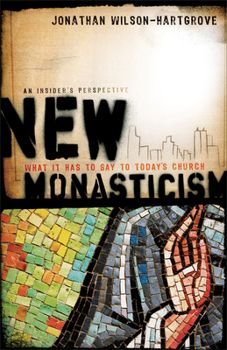New Monasticism: What It Has to Say to Today's Church
Customer Reviews
Rated 4 starsA strategy so old that it seems new!
"...almost everywhere I go these days, people agree that something is wrong in American Christianity." This is the motivation for the book New Monasticism: What It Has to Say to Today's Church by Jonathan Wilson-Hartgrove. He points out many areas in which he believes the church is falling short of God's design and offers some possibilities for how to rethink our approach to these problems using monastic ideas, "a vision...
0Report
Rated 4 starsCommunity Living
Monasticism conjures up images of monks quietly moving through dark monasteries, sequestered from the "real" world as they seek God's will through meditation, prayer and communal living. Jonathan Wilson-Hartgrove brings fresh perspective to the age-old concept of living in Christian community in "New Monasticism: What It Has to Say to Today's Church". Starting with a strong historical foundation, the author explores ancient...
0Report
Rated 5 starsSo inspiring
I think this book is great. Jonathan Wilson Hartgrove gives the topic a very thorough treatment, but still manages to keep it short. One thing I wasn't too crazy about: the endorsement of Jesus People USA. I understand they started out right, but it's generally known at this time that they are a cult.. so that pricked me a little. But other than that, the book was great.
0Report














